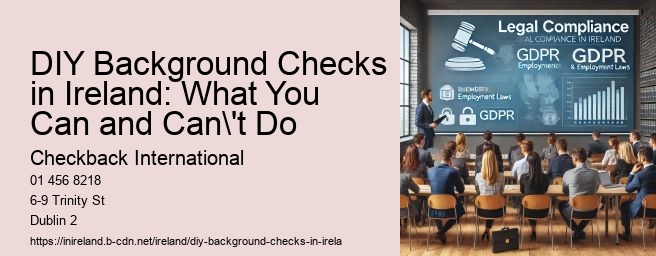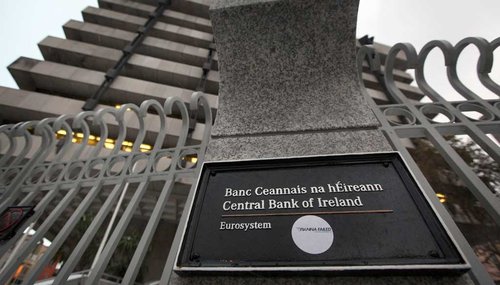

The regulations require five-year background checks covering employment history, education verification, and character references. Organizations must follow General Data Protection Regulation (GDPR) rules when processing personal information during vetting.
Irish qualifications can be verified directly through national institutions, while international qualifications require authentication through specialized credential evaluation services.
Comprehensive reports: Quality providers deliver clear, detailed documentation that shows complete candidate information.
Conclusion
Data Protection and Compliance Measures
The regulation requires organizations to be transparent about stored data and gives individuals rights to access, correct, or delete their information, protecting personal data throughout its use.
Biometric ScreeningThe PSA background check process starts when companies collect required information from potential employees, including full names, dates of birth, and addresses.
2.Misinterpretation of Criteria: Know the specific vetting criteria to assess candidate eligibility correctly.
For specific jobs, such as positions working with children or in healthcare, Garda vetting is required by law. Organizations conduct these checks to follow legal requirements like GDPR and maintain workplace safety. The process requires clear communication about what checks will be performed, supporting both trust and legal obligations.

The company uses an application system that processes European Criminal Record Checks through one central form.
Are There Age Restrictions for Undergoing a PSA Background Check?
3.Scheduled Follow-ups: Set regular check-in times to address discrepancies or missing information, maintaining process timelines.


European Background Check Standards
Sanctions and Watchlist CheckThe Consequences of Skipping Background Checks in Irish Hiring
What Specific Information Is Required From Candidates for Vetting?
The processing period for ECRCs takes 5 to 10 working days. This quick service matters in industries needing rapid staffing decisions.
1.Judgment Obtainment: Identification of any registered or unregistered financial judgments against a candidate.

Companies like Kuehne + Nagel have ongoing partnerships with vetting providers, showing the value of reliable screening in this sector.
The ECRC system handles multiple checks for candidates who have lived at different European addresses, combining information from the Garda, DBS, and Department of Justice into complete reports.
Criminal Record Verification Process
Credit History Check
A background check in Ireland involves reviewing a person's criminal, financial, or personal records to assess their suitability for a role or position.
The duration can vary but typically takes between 1-2 weeks, depending on the type and complexity of the check.
Garda vetting is a specific type of background check required in Ireland for individuals working with children or vulnerable adults, involving checks against police records.
Yes, you must obtain consent from the individual before conducting any background checks in Ireland.
Not for all employees, but certain sectors such as healthcare and education may require comprehensive checks.
It includes checking for any criminal convictions or offences recorded against the individual.
Yes, individuals can request their own background checks in Ireland for personal review or to prepare for employment screenings.
Skipping background checks can lead to hiring unsuitable candidates, which may result in legal and reputational risks.
Yes, police clearance is a general criminal record check, while Garda vetting is specific to roles involving vulnerable groups and includes more detailed investigations.
You can request transcripts or degrees directly from educational institutions or use third-party services that specialize in educational verifications.
Information about spent convictions, certain types of personal data, and other protected characteristics under GDPR is off-limits unless specifically relevant and lawful to access.
International checks may involve additional complexities such as different laws, languages, and longer processing times.
No, background checks do not affect your credit score as they do not involve a credit inquiry that would impact the score.
Best practices include securing data in compliance with GDPR, limiting access to authorized personnel, and ensuring data is stored for only as long as necessary.
It depends on the industry and role, but typically every 2-3 years or when significant changes occur in the individual’s role or responsibility.
While not specific by law, many IT positions require checks due to access to sensitive or proprietary information.
GDPR regulates the processing of personal data, ensuring that background checks are conducted in a lawful, fair, and transparent manner.
Yes, but it must be done lawfully and with the individual’s consent, considering the relevance to the role.
Penalties can include fines, legal actions, and reputational damage, depending on the severity of the non-compliance.
Remote work has increased the importance of thorough background checks, especially for those in positions of trust or handling sensitive data.
Best practices include conducting similar checks as for permanent staff, especially if they have access to sensitive or critical areas.
Ensuring fairness involves following consistent procedures, obtaining consent, and allowing candidates to dispute inaccuracies.
Yes, it’s recommended to tailor background checks based on the specific risks and requirements of each position.
Signs include transparency about services, compliance with legal standards, positive reviews, and strong data protection practices.
Handling involves assessing the relevance to the job, discussing findings with the candidate, and considering legal and ethical implications.